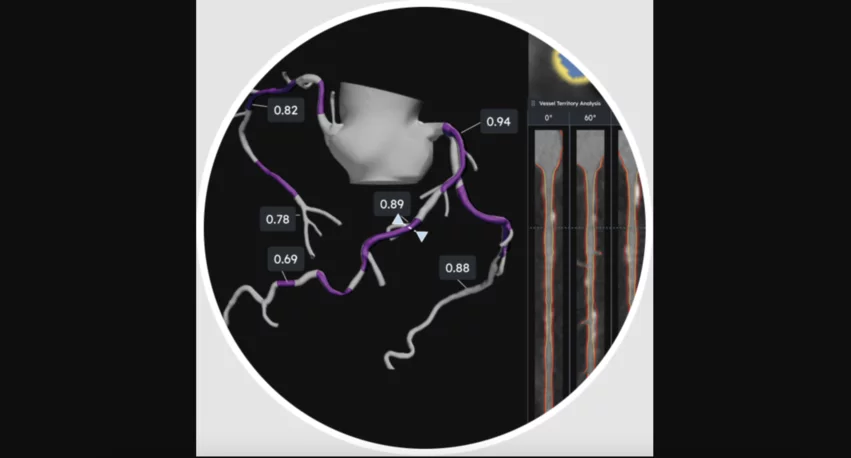Medicare coverage expands again for AI-enabled coronary plaque assessments
Medicare coverage has increased yet again for artificial intelligence (AI) platforms that evaluate imaging results to quantify coronary plaque buildup and identify signs of coronary artery disease (CAD).
Four of seven Medicare Administrative Contractors (MACs) previously agreed to a new local coverage determination (LCD) that updated Medicare coverage for such AI-powered evaluations beginning on Nov. 24. The other three MACs abstained, meaning they would carry on like normal and consider each approval on a case-by-case basis.
Now, however, a fifth MAC—Noridian—has agreed to the expanded Medicare coverage with its own LCD. The change officially goes into place Dec. 8.
AI providers celebrate expanded Medicare coverage
These changes are expected to significantly improve patient access to FDA-approved AI offerings such as HeartFlow’s Plaque Analysis, Cleerly’s Coronary Analysis and Elucid’s PlaqueIQ. These platforms use advanced AI models to interpret coronary CT angiography (CCTA) images for symptoms of CAD, alerting the user when such findings are identified.
“We commend the MACs for recognizing the value and critical role of AI-enabled plaque quantification technologies in cardiovascular disease management,” John Farquhar, HeartFlow CEO, said in a statement that echoed his thoughts on the previous coverage update.
Meanwhile, James K. Min, MD, founder and CEO of Cleerly, told Cardiovascular Business he and his colleagues are “thrilled” with the update.
“This decision means that 60.6 million Medicare beneficiaries and 33 million Medicare Advantage beneficiaries—an incredible 93.6 million total individuals—will now have access to noninvasive CT imaging,” Min said. “This advancement is a monumental step forward in our mission to eliminate heart attacks and establish a new standard of care for heart disease. We are dedicated to transforming cardiovascular health and are excited about the impact this will have on millions of lives.”
Elucid celebrated the update as well, highlighting the many benefits for heart patients.
“These recent decisions from five of the seven MACs recognize the importance of new technologies like ours that can help quantify and classify coronary artery plaque to help physicians reduce the clinical and economic burden of cardiovascular disease,” Kelly Huang, Elucid’s CEO, said in a statement.


